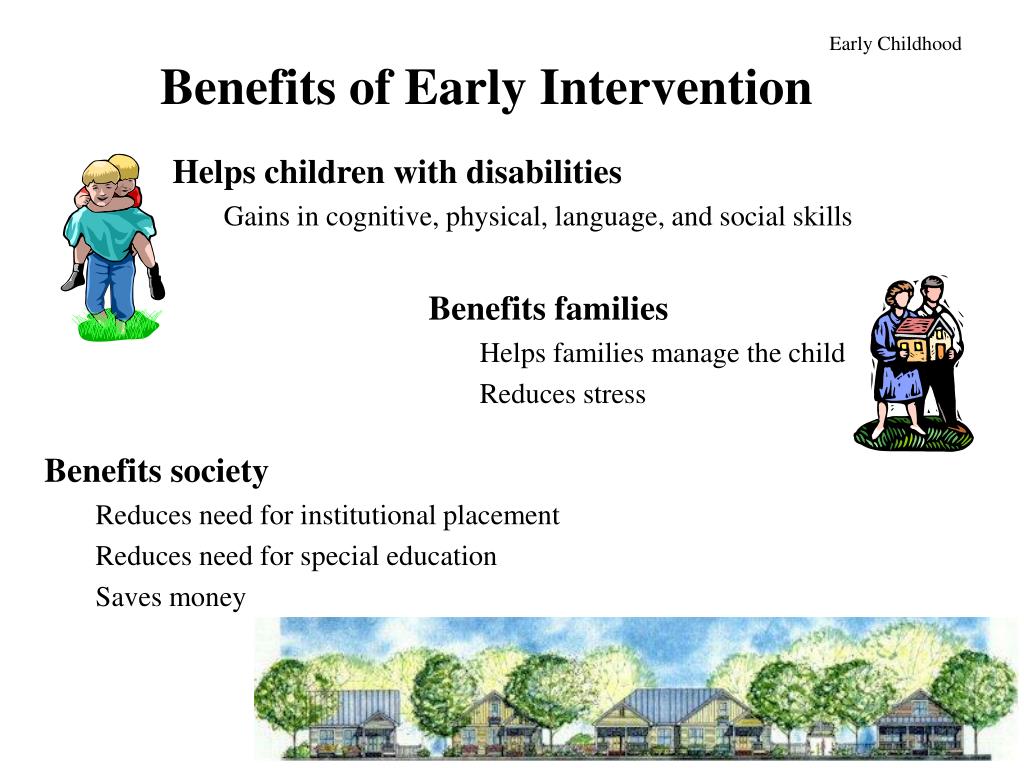The Benefits of Early Intervention
Early intervention programs have been proven to be highly effective in addressing developmental delays and disabilities in young children. In this article, we will explore the various benefits of early intervention and how it can positively impact a child’s life.
Improved Developmental Outcomes
Early intervention plays a crucial role in promoting optimal development in children. By identifying and addressing developmental delays at an early stage, children have a greater chance of reaching their full potential. These programs focus on providing tailored support and therapies that target specific areas of concern, such as speech and language development, motor skills, cognitive abilities, and social-emotional development.
Enhanced Cognitive Skills
Research has consistently shown that early intervention can significantly improve cognitive skills in children. Through stimulating and age-appropriate activities, children are encouraged to explore, learn, and develop essential cognitive abilities. These interventions help in shaping a solid foundation for future academic success and lifelong learning.
Promotion of Social and Emotional Well-being
Early intervention programs also prioritize the social and emotional well-being of children. By providing them with opportunities to interact with peers and engage in activities that promote emotional regulation and social skills, these programs foster healthy emotional development. This, in turn, can lead to improved self-esteem, better relationships, and overall mental well-being.
Prevention of Secondary Issues
Another significant benefit of early intervention is its potential to prevent or minimize the development of secondary issues. By addressing developmental delays early on, children are less likely to experience long-term difficulties that may arise if these delays are left unattended. Early intervention can help mitigate challenges in areas such as communication, behavior, and academic performance, reducing the need for more intense interventions later in life.
Support for Families
Early intervention programs not only focus on the child but also provide support to families. Parents and caregivers are empowered with knowledge, strategies, and resources to better understand and address their child’s unique needs. This support network can help alleviate stress, enhance parenting skills, and promote a positive family dynamic.

Early intervention programs offer a multitude of benefits for children with developmental delays and disabilities. By providing targeted support, these programs improve developmental outcomes, enhance cognitive skills, promote social and emotional well-being, prevent secondary issues, and support families. Investing in early intervention is a proactive approach that can positively impact a child’s life and future success.
Frequently Asked Questions about the Benefits of Early Intervention
1. What is early intervention?
Early intervention refers to the support and services provided to children with developmental delays or disabilities at an early age to enhance their overall development.
2. What are the benefits of early intervention?
Early intervention can lead to improved cognitive, social, and emotional development in children. It can also enhance their communication skills and help them reach their full potential.
3. At what age should early intervention services begin?
Early intervention services should ideally begin as soon as a developmental delay or disability is suspected, which can be as early as birth or during the first few years of a child’s life.
4. How does early intervention help children with disabilities?
Early intervention provides specialized therapies, interventions, and support tailored to the specific needs of children with disabilities, helping them overcome challenges and develop the necessary skills for future success.
5. Can early intervention prevent or minimize the impact of developmental delays?
Early intervention can help prevent or minimize the impact of developmental delays by addressing them promptly and providing appropriate support, therapies, and interventions to promote healthy development.
6. What are some common early intervention services?
Common early intervention services include speech therapy, occupational therapy, physical therapy, behavior therapy, special education, and family support services.
7. Are there long-term benefits of early intervention?
Yes, early intervention has long-term benefits. Children who receive early intervention services are more likely to succeed in school, develop strong social skills, and lead independent and fulfilling lives as adults.
8. How can parents get early intervention services for their child?
Parents can contact their local early intervention program or speak to their child’s pediatrician to initiate the process of accessing early intervention services. Referrals can also be made by educators or healthcare professionals.
9. Are early intervention services expensive?
Early intervention services are typically provided at little to no cost to families. In many countries, these services are covered by government programs or health insurance plans.
10. What role do parents play in early intervention?
Parents play a crucial role in early intervention by actively participating in their child’s therapy sessions, implementing strategies at home, and advocating for their child’s needs. Their involvement greatly enhances the effectiveness of early intervention services.




